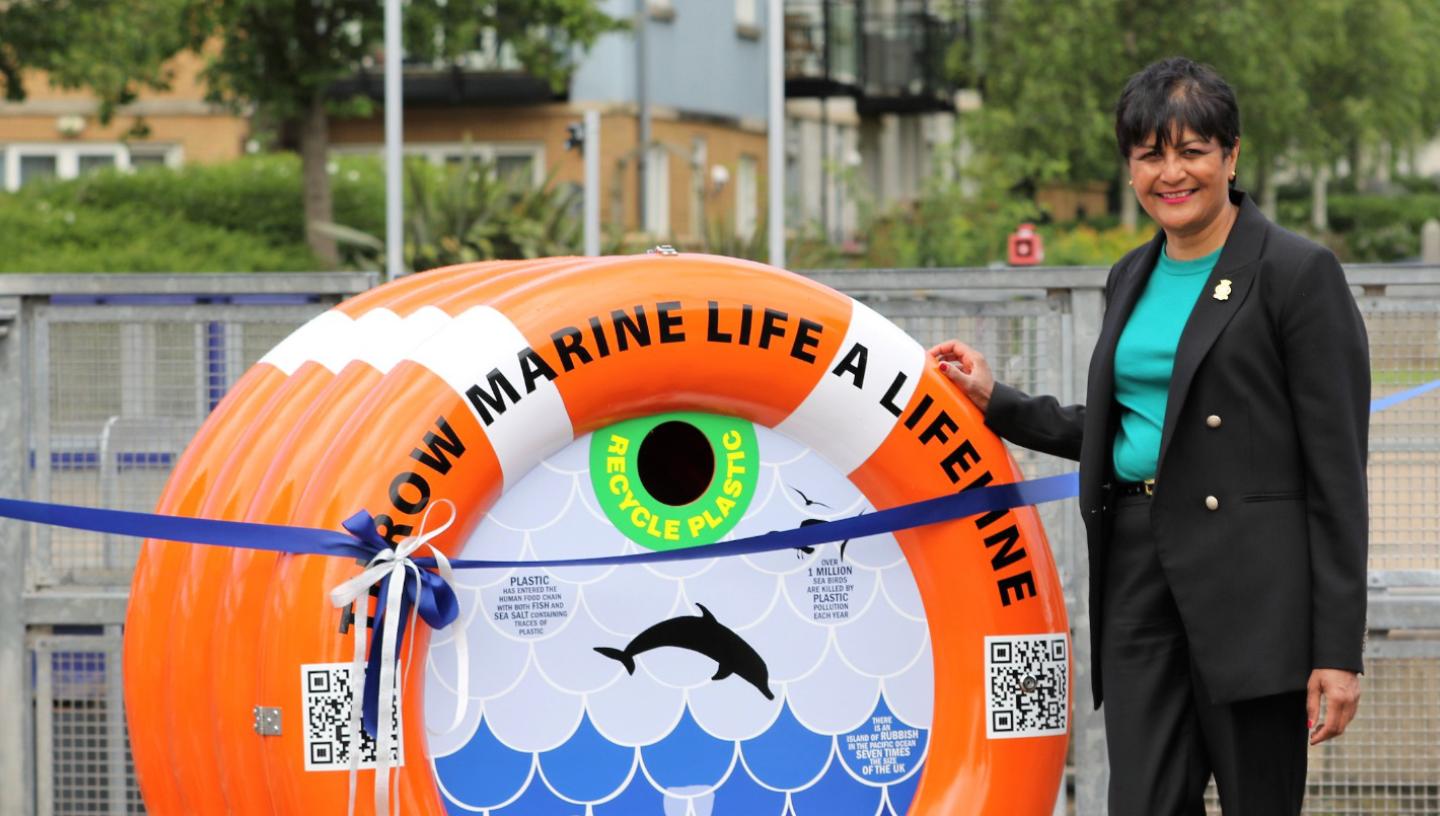
Fazilette Khan has always had an adventurous spirit. Inspired by her father’s experiences in the Navy, she was drawn to a life at sea from a young age and dreamed of travelling the world.
Her seafaring career enabled her to do exactly that, working as a radio officer and electronics engineer in the Merchant Navy and as an environmental officer for cruise liners.
In 2003, she embarked on her greatest adventure yet. In response to her experiences at sea and the rubbish she encountered in coastal areas, she founded the GreenSeas Trust. The organisation aims to stop plastic entering our seas through environmental programmes.
Fazilette’s unwavering commitment to the marine environment was recognised in 2020, when she was awarded the Merchant Navy Medal.
She reveals the varied life of a seafarer, what it was like being the only woman on board – and the process of founding her charity.
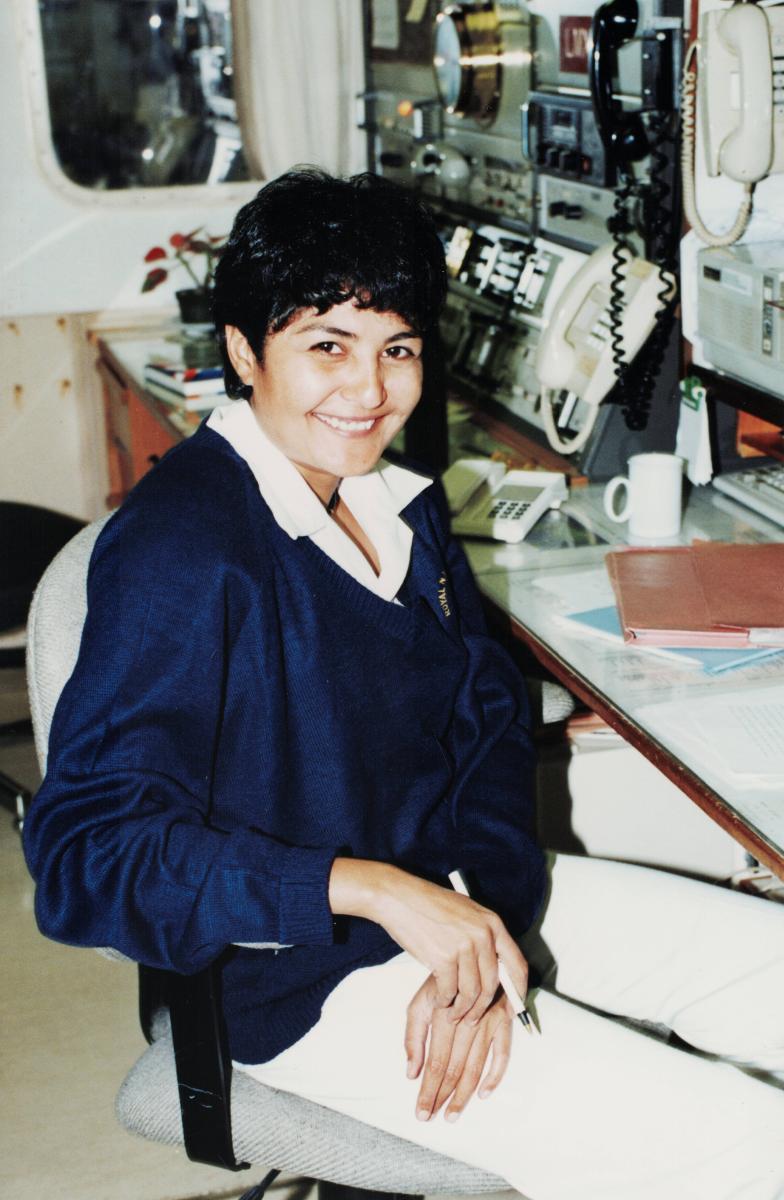
You started your seafaring career in the Merchant Navy. What were your experiences at sea?
When I joined the Merchant Navy in 1984, there were very few women at sea; normally I was the only female on board. From day one I decided that nobody was going to walk over me. I was going to hold my ground and be respected for my rank.
No two days were ever the same. My work as a radio officer involved communicating with the Shoreside office, picking up distresses and making sure the chandler – a dealer in supplies and equipment for ships – was informed about the food we needed. In those days, ships couldn’t sail without a radio officer on board, so it was a key position.
I was also an electronics engineer, which involved looking after the electronics on board. If the radar or navigation and communications packed up, I had to fix them.
Weather played a huge role in daily life, and I was responsible for obtaining the reports. If things were calm, that was great. If there was a big storm, there was the worry of rogue waves, loss of cargo and potential damage to the ship.
I was at sea for around three months at a time, with limited contact with family. I was often stationed on ULCC oil tankers (Ultra Large Crude Carriers), which are like huge floating islands. Because the vessels are so big, they don’t tie up along port. We would tie up to these big buoys in the middle of the ocean and discharge and take on the oil there.
This meant that we didn’t interact with anyone outside the vessel for several weeks. It could be isolating: we were stuck with each other and couldn’t go ashore. I remember once the captain said, “Ship on the portside”, and we all ran to look at the vessel – it made us remember that there were other human beings in the ocean!
When did you first become aware of marine pollution?
During the early stages of my career, nobody cared that much about the environment. Then, one day, I was standing on the bridgewing of a huge ULCC when I saw a tractor tyre with four paint pots following in its wake.
I went to the radar to see which ship had thrown it – I was going to give them a piece of my mind – but there wasn’t a ship for 72 miles. Suddenly, I realised that this idea of the sea being a black hole into which rubbish disappears simply wasn’t true.
After my mother passed away, I went to Tobago on holiday. I was sitting on a beach where people were having their picnics. But after they finished, they chucked all their rubbish into the sea. I felt as though I had to do something about it.
A few weeks later, I was made redundant from my job at the time, and this gave me the push to found the GreenSeas Trust, a charity that aims to stop plastics entering our seas.
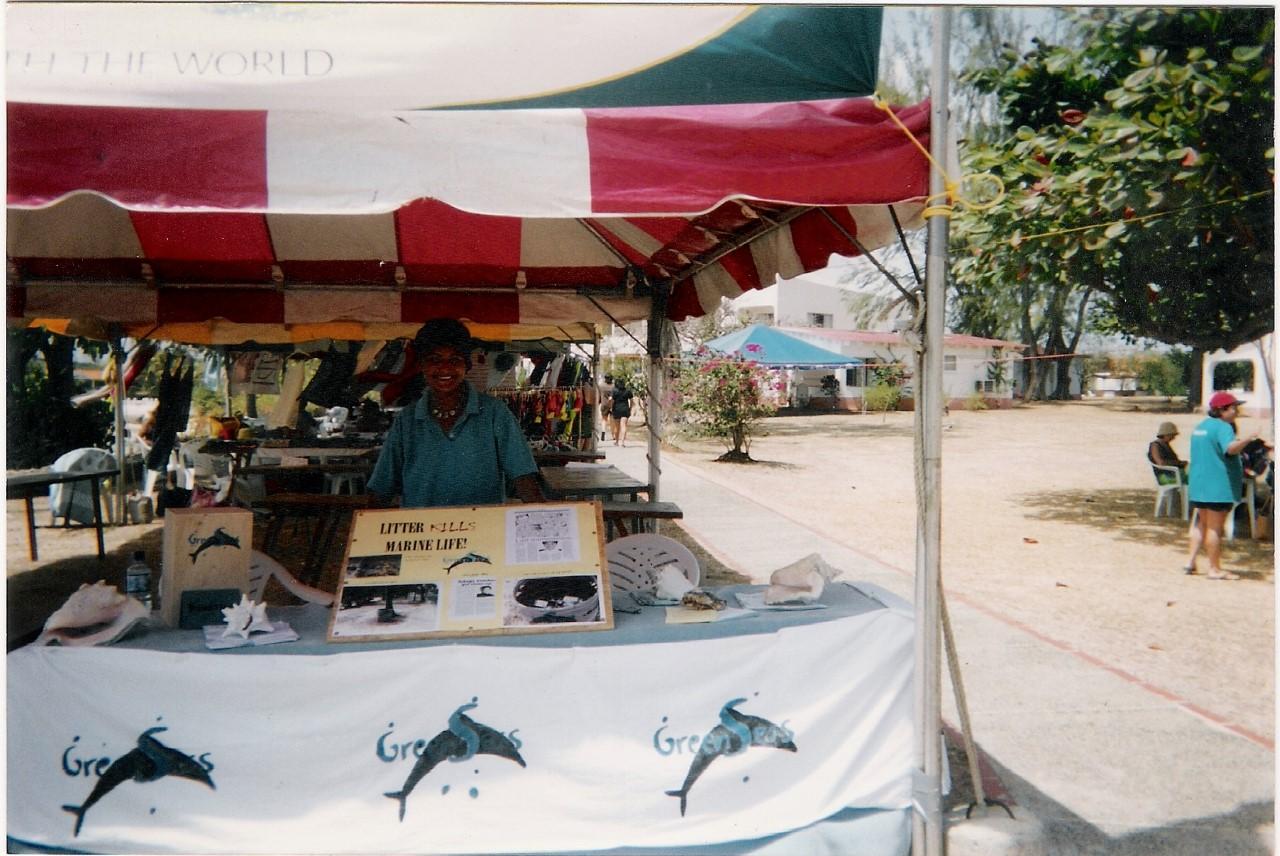
Shortly after registering the charity, I went back to the beaches in Tobago and tried to work out why littering was taking place. I soon realised the beaches didn’t have any bins.
I set to work. I got an oil company to donate drums and enlisted the help of the local community to paint them. We placed these bins along six of the island’s most popular beaches and created educational materials for schools about marine litter. The success of it was so satisfying.
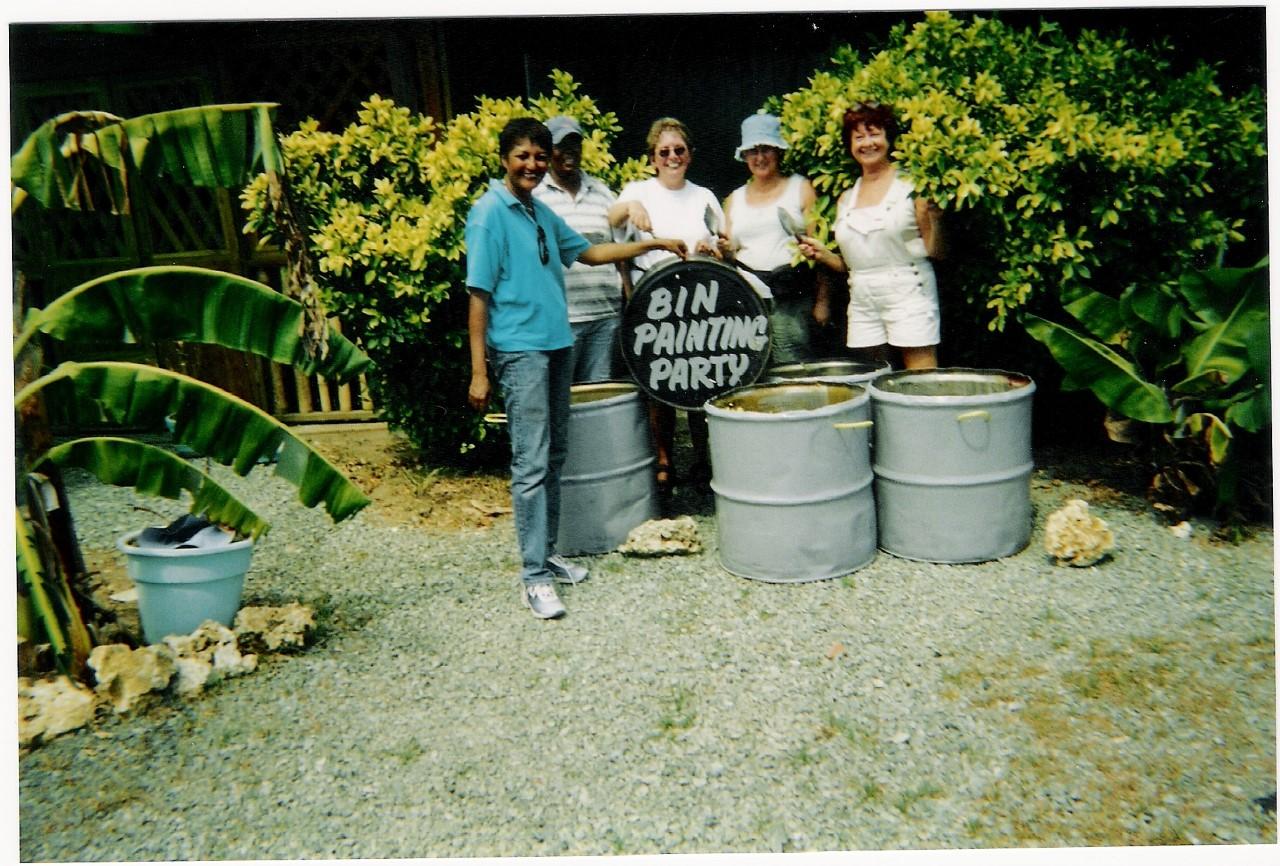
What is GreenSeas Trust doing to tackle marine plastic pollution?
Since our foundation in 2003, we have worked with community groups across the UK to stop plastic entering the sea at source.
One of our key campaigns is our BinForGreenSeas, inspired by the success in Tobago. While there are lots of bins on UK beaches, people can’t be bothered using them because they’re bland and they think, “It’s just one plastic bottle I’m leaving on the beach, who cares?”
However, what they don’t realise is that all these individual plastic bottles are adding up to millions across the ocean. In the UK alone, around 700,000 plastic water bottles are littered every day.
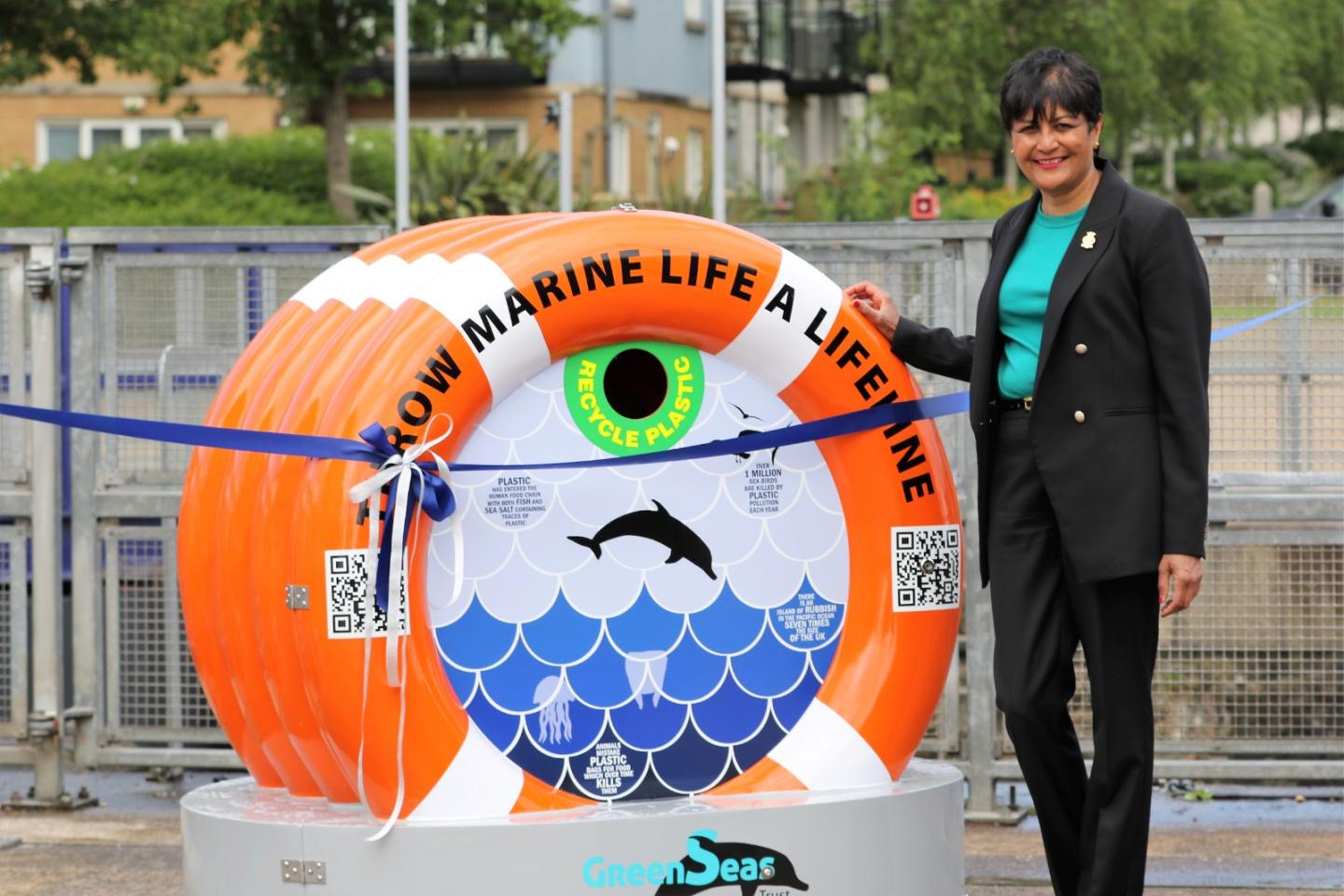
What we wanted to do was to create bright, large recycling bins for plastics that would also be a visual educational tool: to remind people that there is a connection between rubbish left on the beach, our health and the health of the oceans.
We have 11 bins installed on coastal and riverside promenades across the UK, including Canary Wharf, South Bay beach in Scarborough and Blackpool. The bins are made from fibreglass and contain a special resin made from around 450 recycled plastic bottles.
We’ve had a lot of positive feedback from councils too; some bins receive over 60kg of plastic each month. By 2023, we hope to have 16 or more bins placed around the UK.
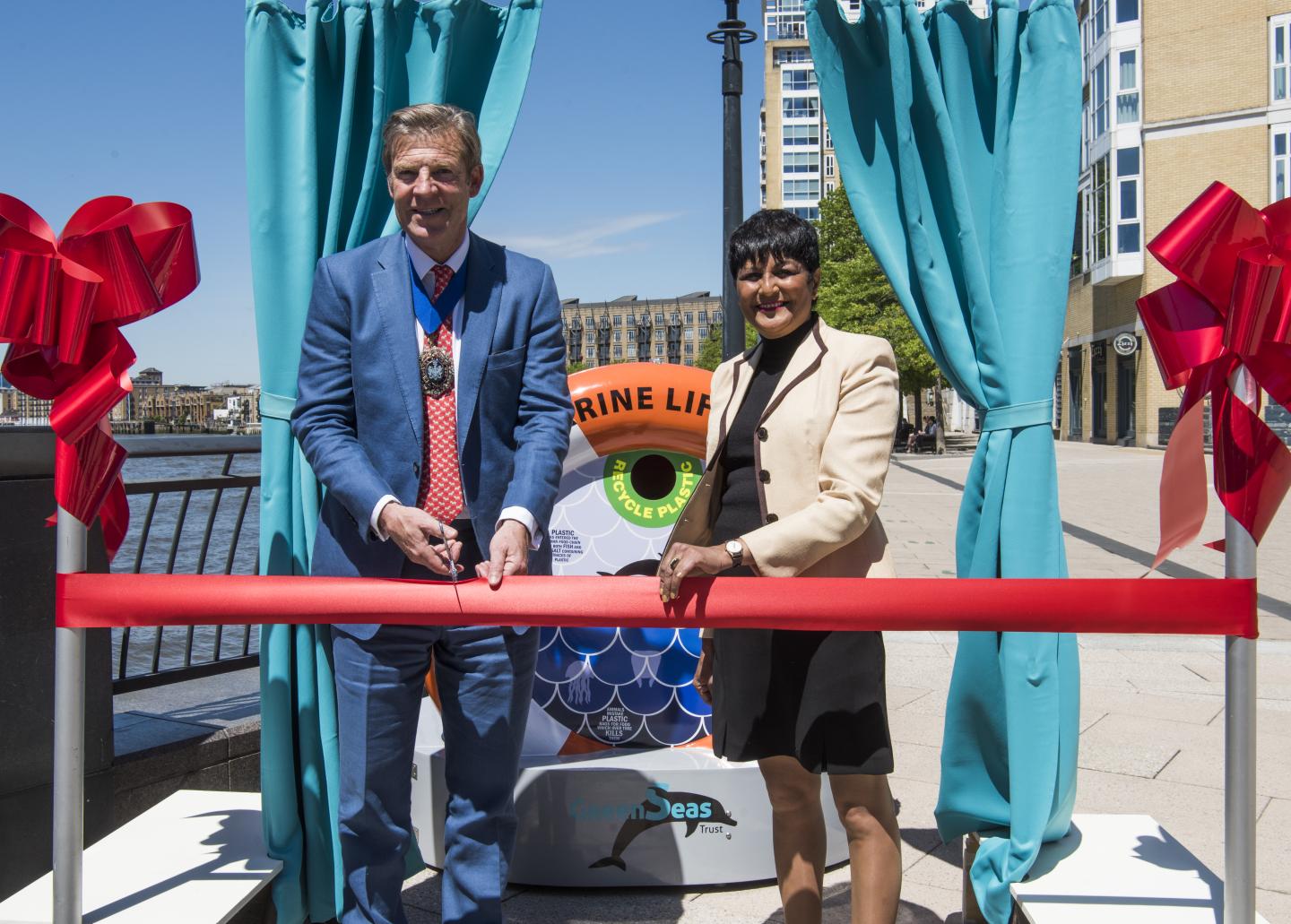
Another area we’re focusing on is cigarette butts. They’re the number one item found in coastal clean-ups, and it’s estimated that around 4.5 trillion cigarette butts end up in the ocean each year.
While people assume that these objects are made out of paper and tobacco, the filters are made of cellulose acetate fibres – a plastic that does not biodegrade. The filters also contain carcinogenic chemicals, pesticides and nicotine: toxins that can harm the marine environment.
We also give sustainability talks and workshops to primary and secondary schools. We run activities like ‘trash to treasure’ where we ask children to find a used plastic item from their home and make it into something new.
What’s next for the GreenSeas Trust?
We’re keen to do more work with shipping crews to educate them about marine plastics and litter.
When the ship’s rank of Radio Officer became redundant, I transitioned to becoming an environmental officer on cruise ships, in tandem with the GreenSeas Trust. As part of my role, I was overseeing the waste streams, such as oil, sewage and water, and training crews to be more environmentally friendly.
What I found was that there were some prevailing misconceptions among the crew that were holding back environmental progress. For example, many of the crew had this idea that bottled water was better to drink than the water available on board.
Ships produce their own water, which is actually the purest water you can get: it’s distilled water when processed and then minerals are added to it. It was experiences like this that informed my focus at the GreenSeas Trust.
There’s a lot more work that needs to be done within the shipping industry to tackle marine plastics. Many shipping companies think that because they employ someone with ‘sustainability’ in their job title that they have achieved the goals that are necessary.
But so often, it’s not the huge $10 million projects that make real progress, but the small changes that are introduced. People tend to think that these small changes – such as drinking the ship’s water – aren’t sexy enough and don’t have value. However, it’s these tiny changes that make the little links, which go on to make the small chain and then the big chain, which leads to effective change.
Given the huge challenges facing the ocean, how do you remain motivated?
Over the course of my seafaring career, I’ve seen the effects of the plastic pollution crisis first hand, from encountering islands of floating bottles in coves in the West Indies to sailing through the Great Pacific Garbage Patch in the North Pacific Ocean.
As a species, we need to change the way we think: this throwaway society is not going to last. If we don’t take action against marine plastic, it’s going to affect our health and that of the marine environment.
Far from being discouraged however, seeing such stark reminders of the plastic crisis motivates me to keep going and to find solutions.
When I first started the GreenSeas Trust, I was daunted by the scale of the project. People would say to me, “But what about the turtles, what about the trees?”
I realised I would go mad if I tried to tackle all the world’s problems. My background as an engineer taught me the importance of being very focused in my approach, so I decided to hone in on plastic pollution.
One of the best pieces of advice I ever received was from a friend during my beach clean-up in Tobago. I remember saying to her, “I have absolutely no clue what I’m doing,” and she said, “Fazilette, if you can change the mind of one person, that’s one person more than yesterday.”
That’s how I deal with things. With every new BinForGreenSeas we place, every piece of positive feedback we receive, it feels like a milestone. All I need is one person’s mind to be changed and I’ve done my good deed for the day.
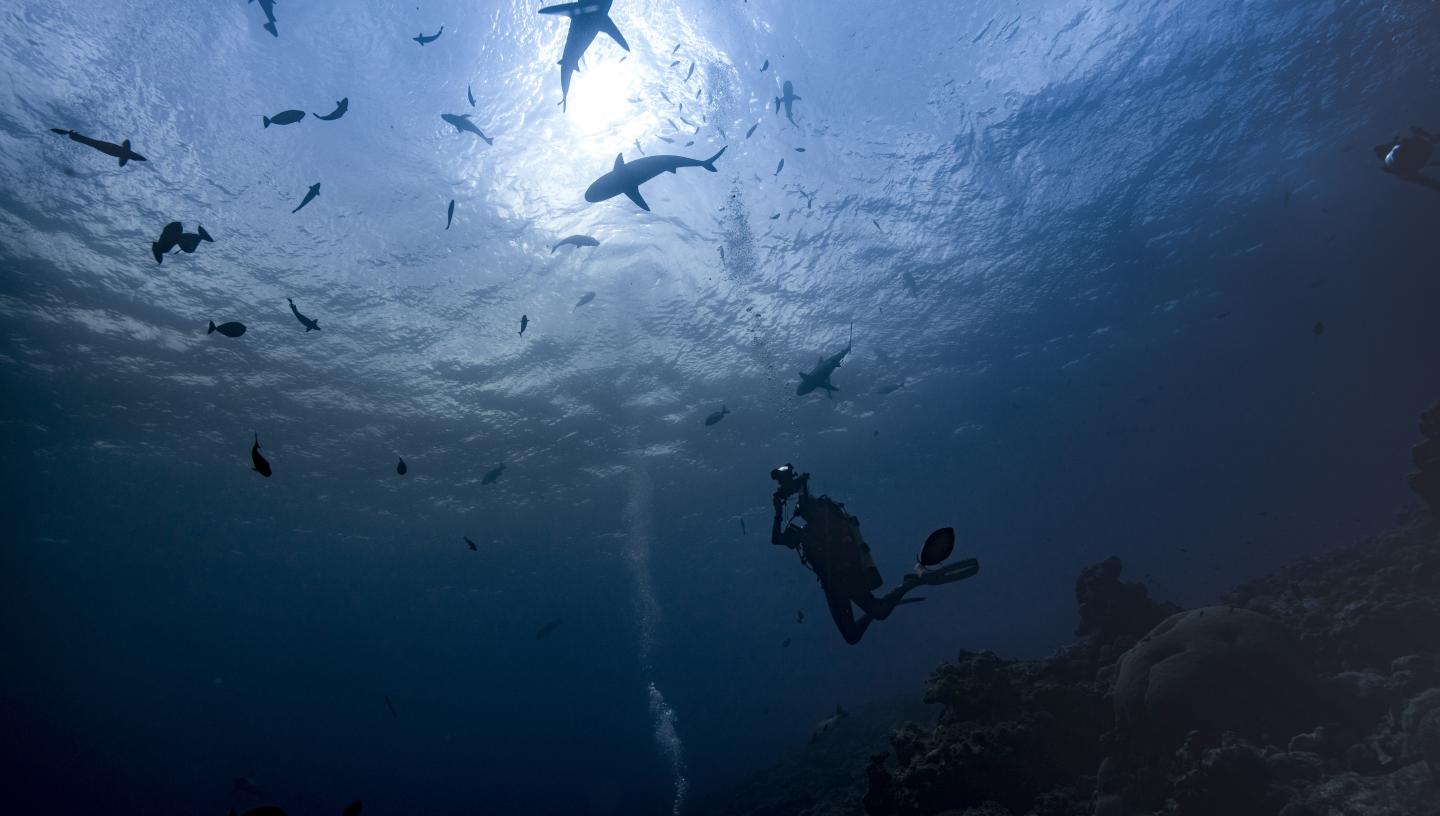
Making Waves
As told to Elizabeth Oliver, Digital Content Producer at Royal Museums Greenwich
Images courtesy of Fazilette Khan
